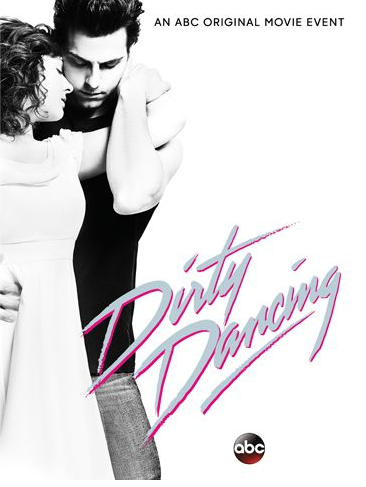
Serious Missteps in Dirty Dancing Remake
For starters, the Jewishness of this smart girl is up for grabs. The one potentially explicit reference to Baby’s Jewishness comes at the end of the film when she tells Johnny that the only dancing she does these days (12 years after the summer that was “the time of their lives”) is salsa at the JCC. Since you don’t have to be Jewish to dance at a JCC (as the recent spate of bomb threats across the country made clear), this is a weak identity marker at best. One might have hoped that Baby and the whole Housman family could have come out more as Jews in the 30 years since the original, which coded its Jewishness through names and the Catskills setting. But the overt Jewiness that we have come to know, love, and critique in such shows as “Transparent” and “Broad City” is nowhere to be found here. Baby’s sister, Lisa, is at one point referred to as a “white girl,” and even the pastrami sandwiches are served on rye TOAST with coleslaw and MAYONNAISE.
To add cinematic insult to injury, the smartness of this ambiguously Jewish girl is also up for grabs. At the beginning of the film, Baby is reading Betty Friedan’s The Feminine Mystique. Yet, somehow, Baby seems genuinely grateful for the mansplaining offered by Neil Kellerman, the grandson of the resort owner: “Isn’t that what the Feminine Mystique is all about? That women shouldn’t have to choose between a career and a personal life.” Yet when Baby’s older sister Lisa demonstrates her raised consciousness by reading this feminist classic and comparing Francis to Friedan, Baby responds with “I don’t know anything, Lisa. I just read a lot and want to sound smart. But you can’t tell other people how to live their lives.”
At one point, Jake Houseman tells his daughter Baby to “use your brain, that amazing brain I spent my entire life filling with everything I know.” And at another point, Penny, Johnny’s dance partner and the survivor of a botched illegal abortion (it’s the summer of 1963), tells Baby, “You’re too much in your head.” From the perspective of this odd pre- and post-feminist flick, the Jewish smart girl is either the creation of her doctor dad or too brainy for her own good.
The film ends, as it began, in 1975, with the frame of Baby at a performance of Johnny’s Broadway hit “Dirty Dancing.” Johnny claims that his choreographic accomplishment was inspired by Baby’s book. Yet Baby is visually defined by her husband and daughter rather than by her writing. Apparently, in the world of this remake, men can tell women that they don’t have to choose between a career and a personal life but they can’t seem to show it on-screen. Of course, this is in keeping with a film that represents the “smart and kind” Marge, Baby’s mother (played by Debra Messing), as an unhappy housewife who seems to want more than her marriage but really just wants more sex in her marriage. Betty Friedan, too, must be turning over in her grave.
Penny is also mansplained by the sexually repressed, moralistic Dr. Houseman. According to him, a medical emergency becomes an opportunity for an individual to reflect on her choices—good ones and bad. Given that Penny almost dies because abortion is illegal and thus made dangerous, the good doctor might think more about available medical and legal options rather than women who love too much and men who don’t step up to take care of their women. The current assault on basic reproductive rights happening across America makes the handling of this pre-Roe storyline especially pernicious.
In the 1987 version, Penny’s last name was Johnson; in this 2017 remake, she is a Rivera (played by Nicole Scherzinger, of Filipino, Hawaiian, and Ukrainian descent). While Jewishness is whitewashed, ABC’s TV film plays at presenting a multicultural mosaic, especially in the notably chaste romance that develops between “white” Lisa Houseman and musician of color Marco (who lacks a last name, even in the credits). Yet their seemingly progressive duet, in which Marco sings of himself as on “the dark side of the road” and Lisa croons,“It ain’t no use calling out my name, boy,” is racially cringe-worthy.
With Betty Friedan’s The Feminine Mystique firmly in mind, we have to say that the problem with this film has a name in 2017: retrograde Jewish, feminist and racial politics. Resistance to such politics requires that we don’t simply change the channel.
Helene Meyers is Professor of English and McManis University Chair at Southwestern University. She is the author of Identity Papers: Contemporary Narratives of American Jewishness and Reading Michael Chabon. Her more journalistic writing has appeared in Lilith, Tablet, Ms. Magazine’s Blog, the Washington Independent Review of Books, and the Chronicle of Higher Education. She is currently writing a book on Jewish American cinema.
The views and opinions expressed in this article are the author’s own and do not necessarily reflect those of Lilith Magazine.
One comment on “Serious Missteps in Dirty Dancing Remake”
Comments are closed.




The main female characters in “The Devil Wears Prada” were similarly de-Jewified for the transition from book to movie.